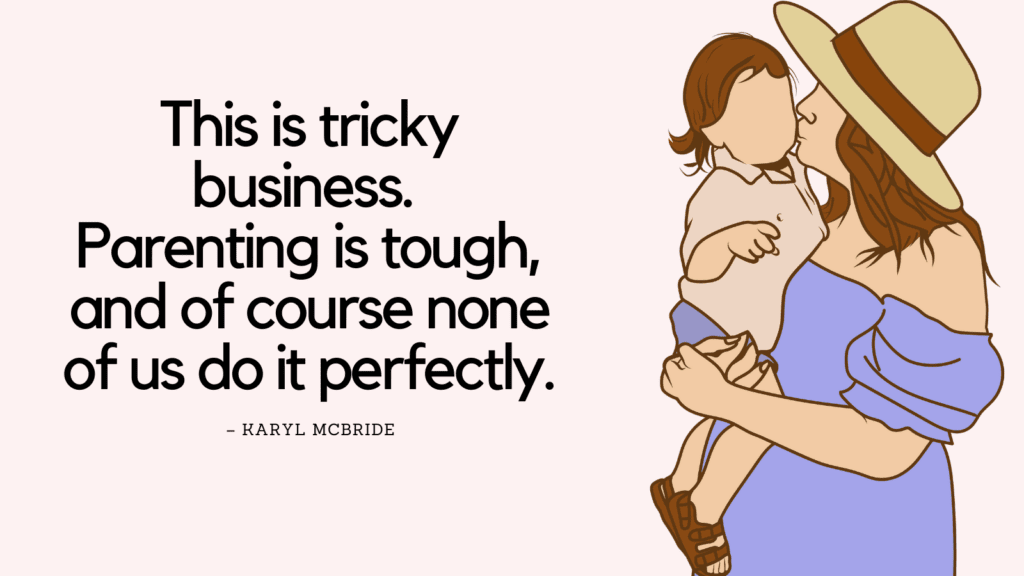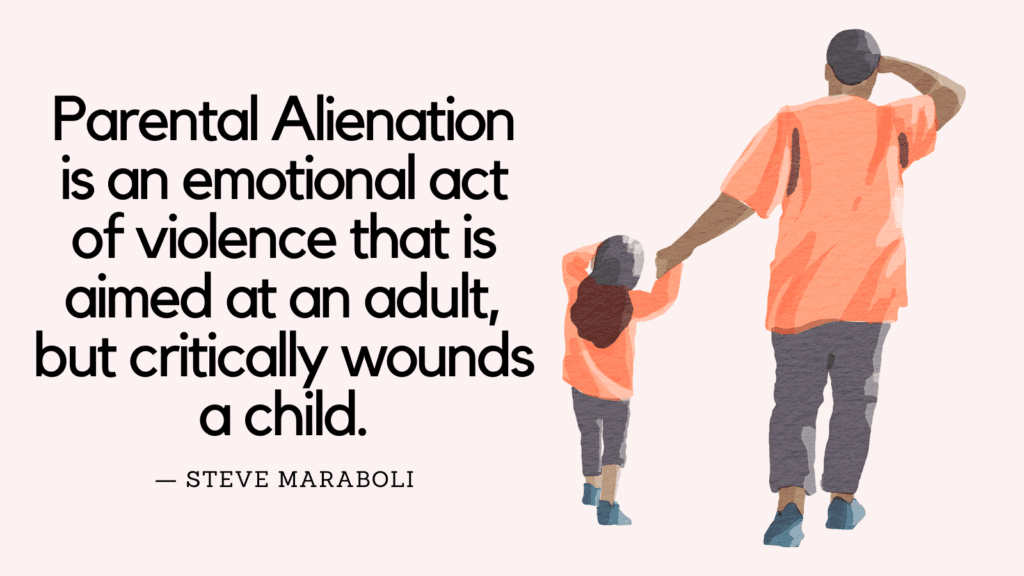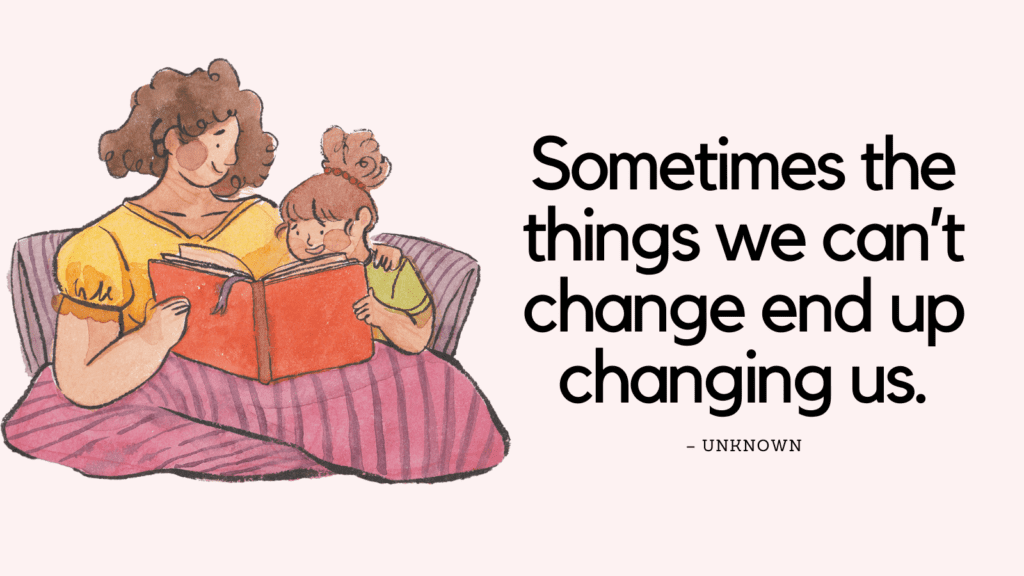This post contains some of the best feeling like a bad mom quotes.
Feeling Like A Bad Mom Quotes
1. “Giving birth to a child is a life-altering experience. When your first child enters the world, you enter the new state of “permanent parenthood” and remain there forever.”— Karyl McBride
2. “For most women, the experience of bearing a child is blessed with intoxicating excitement and anticipatory visions for the future. For daughters of narcissistic mothers, however, it can also be blighted by unrelenting fear and anxiety.”— Karyl McBride
3. “The fear is of being like Mother, of emotionally orphaning your children or harming them in some other way. You worry about not feeling good enough to do the job—whether because you carry that nagging belief around with you everywhere, or because you know you lack certain skills you will need as a parent. Perhaps you haven’t yet fully come into your own identity. Whatever its origin, your fear is very real.”— Karyl McBride
4. “To have worries and fears about your parenting is normal.”—Karyl McBride
5. “Of course, we strive to do the right things for our children, and none of us wants to pass along our own undesirable legacy.”—Karyl McBride
6. “Breaking the cycle is a challenge when you have no positive role model as a mother.”—Karyl McBride
Related: How to Recover From Codependency And Savior Complex?
7. “Daughters of narcissistic mothers often feel as if we are blazing our own trail of love in raising our babies.”—Karyl McBride
8. “If you see yourself making mistakes in parenting, don’t panic. You don’t have to be afraid even if you have learned or inherited some narcissistic parenting traits. This does not mean that you are narcissistic. You can change.”—Karyl McBride
9. “The best thing you can do for yourself and your family is to allow yourself the awareness of possible mistakes you could make or have made, and work to correct them.”—Karyl McBride
10. “If a daughter swings to the other end of the continuum and acts the opposite of her mother, she stands a good chance of creating the same dynamics that she’s trying so hard to avoid. The key lies in finding a middle ground on which you can stand as a loving parent with your own values.”—Karyl McBride
Related: Codependency Quiz (+FREE Codependency Worksheets PDF)
11. “If you want to parent in different ways from your mother, remember that the middle ground you find ultimately needs to be based on your value system and beliefs, but it can indeed include some of your mother’s beliefs.”—Karyl McBride
12. “If you had an engulfing mother, for instance, you may decide you will absolutely not be a smothering mother, but end up doing the opposite, so the child feels ignored on some level.”—Karyl McBride
13. “If you had an ignoring mother, you may decide to give your child so much attention that you end up engulfing her”—Karyl McBride
14. “Another example may be how you handle praising your child. You were never praised or encouraged, so you overdo it with your children.”—Karyl McBride
Related: How to Recover From Codependency And Savior Complex?
15. “Many daughters who didn’t get empathy from their mothers do not know how to give it to their children. The ability to empathize is the most important parenting skill there is”—Karyl McBride
16. “Sometimes we are able to find that middle ground and what we do with our children reflects that. If you succeeded in this, give yourself credit; you deserve lots of it.”—Karyl McBride
17. “One pitfall to finding the middle ground, however, is the internal belief that we ourselves are not good enough. If you carry this unhealthy message within yourself, you are most likely modeling it for your children. You will show them inadvertently, through your behavior, that you feel unworthy, and they will grow to feel the same way about themselves. This can happen even if you don’t really believe it or ever say it to them.”—Karyl McBride
18. “How many of these bumper stickers have we seen? Where are the bumper stickers that say “My kid has a big heart,” “My kid is honest,” “My kid is kind”? A significant problem I see in my practice today is too many parents unable or unwilling to tune in to who their child is as a person. As a daughter of a narcissistic mother, you should beware of this major pitfall. Your child’s accomplishments are not who your child is.”—Karyl McBride
Related: Take The Echoist Quiz (The Opposite Of A Narcissist)
19. “It’s easy to understand the need for authenticity until your own child shows authentic feelings and you don’t like what she is saying or feeling. This is particularly difficult if she expresses negative feelings about you.”—Karyl McBride
20. “Remember, children learn more through what they see in us than through what we tell them. If you model in yourself a woman who does not take good care of herself or who stays in unhealthy relationships, feeling you don’t deserve better, or you do not pursue your own passions, don’t be surprised if you see the same in your children. Similarly, if you set boundaries and stand up for yourself, your children most likely will too. This is the best reason there is to embrace recovery”—Karyl McBride
21. “Healthy self-care means finding fulfillment so that you have energy, love, and empathy for others. Finding the middle ground means realizing that it is not an either-or situation—you are neither full of self nor drained of self.”—Karyl McBride
22. “You may be thinking, “I want to have my daughter as a friend. I crave this closeness. I didn’t have this with my mother. Please don’t tell me this is wrong. What is the right way?” Even when your daughter becomes an adult, you must still be the mother. You will continue to have parenting duties and need to provide guidance, empathy, and understanding. It is not your daughter’s job to give that to you.”—Karyl McBride
23. “This is tricky business. Parenting is tough, and of course none of us do it perfectly.”—Karyl McBride
Related: How to NOT Raise a Narcissist? 7 Surefire Ways to Prevent Narcissism In A Child

How to Cope With Feelings Like a Bad Mom?
Feeling like a “bad mom” is a common and challenging experience that many parents go through. It’s important to remember that these feelings are often rooted in self-doubt and high expectations.
Here are some scientifically-supported suggestions to help you cope with these emotions:
1. Self-Compassion
Practice self-compassion by being kind and understanding towards yourself.
Remind yourself that parenting is a learning process, and it’s normal to have self-doubt.
Treat yourself with the same empathy and compassion you would show to a friend facing similar feelings.
Related: How To Be Gentle With Yourself? Top 5 Ways To Practice Self-Compassion
2. Challenge Negative Thoughts
Recognize negative self-talk and challenge those thoughts.
Replace self-critical statements with more realistic and positive ones.
Focus on your strengths as a mother and remind yourself that no parent is perfect.
The following questions can help you challenge your negative thoughts:
- What evidence supports this belief that I am a bad mom? Is there any evidence that contradicts it?
- Am I comparing myself unrealistically to an idealized image of what a “good mom” should be? What are the realistic expectations I can set for myself?
- Are there any specific examples of times when I felt like a good mom? What did I do during those moments that made me feel that way?
- Are my negative thoughts based on a single mistake or a challenging moment, rather than a reflection of my overall parenting abilities?
- How would I react if a friend or loved one expressed the same concerns about their parenting? Would I be as harsh and critical towards them as I am towards myself?
Related: How To Do Thought Work In 3 Simple Steps
3. Seek Support
Talk to trusted friends, family members, or other mothers who can relate to your experiences.
Sharing your struggles, concerns, and insecurities can provide emotional support and reassurance that you are not alone in feeling this way.
4. Set Realistic Expectations
Adjust your expectations and understand that parenting is a complex journey with ups and downs.
No parent has all the answers or gets it right all the time.
Focus on doing your best within your circumstances and be realistic about what you can reasonably achieve.
5. Practice Self-Care
Prioritize self-care activities that recharge and rejuvenate you.
Taking care of your physical and mental well-being will enable you to better handle difficult emotions and be more present for your child.
Seek help from your partner, family, or friends to ensure you have time for yourself.
Related: Top 45 Self Care Day Ideas at Home To Kickstart Your Self Care Ritual
6. Celebrate Small Victories
Acknowledge and celebrate your accomplishments as a mother.
Recognize the small wins and the love and care you provide to your children.
Remember, even the simplest acts of love and nurturing can have a significant positive impact on your child’s well-being.
7. Seek Professional Help
If feelings of inadequacy persist and significantly impact your well-being, it can be helpful to consult with a therapist or counselor.
They can provide guidance, support, and help you develop coping strategies specific to your situation.
Related: Do I Need Therapy Quiz (+FREE Therapy Guide)
Conclusion
Being a good mom is not about perfection but about love, commitment, and doing your best.
Give yourself permission to make mistakes and learn from them.
With time and practice, you will grow in confidence and become more secure in your parenting abilities.



